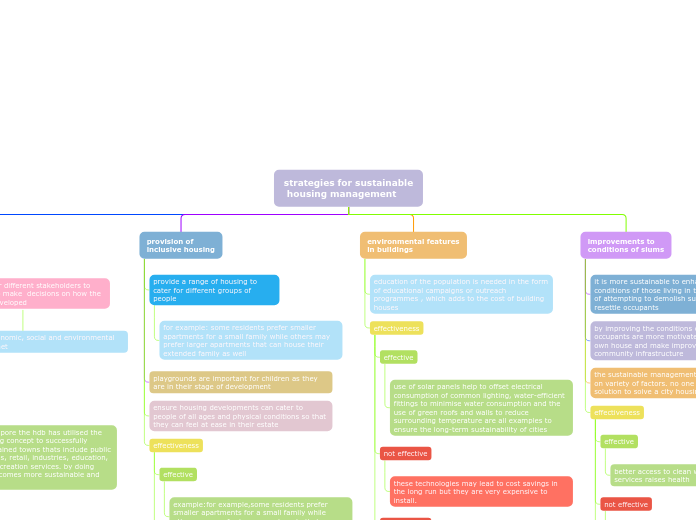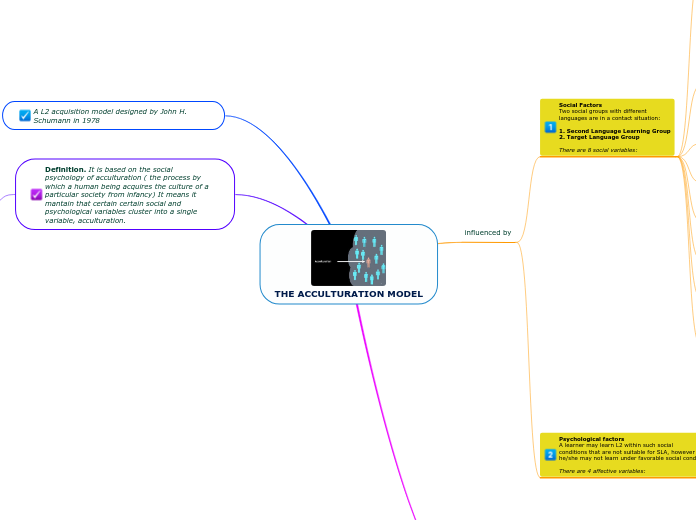strategies for sustainable
housing management
improvements to
conditions of slums
social impact of improvements to slum conditions remains questionable, as crime rates, unemployment and the stigmatisation of those living in such circumstances still remain
although these schemes improve the quality of life of the occupants, they often run contrary to long term-city development plans since these informal housing settlements are built on plots of land not intended for housing use.
better access to clean water and sanitation services raises health
the sustainable management of housing depends on variety of factors. no one strategy can be the solution to solve a city housing challenges.
by improving the conditions of the slums, occupants are more motivated to invest in their own house and make improvements to community infrastructure
it is more sustainable to enhance the living conditions of those living in these areas instead of attempting to demolish such settlements and resettle occupants
environmental features
in buildings
people may not understand the benefit of these and thus may be perceived as inconvenient
for example, residents who do not understand the benefits of recycling might also find it troublesome to sort their trach before disposing it into the recycling bins
these technologies may lead to cost savings in the long run but they are very expensive to install.
use of solar panels help to offset electrical consumption of common lighting, water-efficient fittings to minimise water consumption and the use of green roofs and walls to reduce surrounding temperature are all examples to ensure the long-term sustainability of cities
education of the population is needed in the form of educational campaigns or outreach programmes , which adds to the cost of building houses
provision of
inclusive housing
example: making public housing is costly as costs is needed to provide access to disadvantaged groups or groups with special needs. also catering for a variety of housing types means that more time and effort is needed
example:for example,some residents prefer smaller apartments for a small family while others may prefer larger apartments that can house their extended family as well
ensure housing developments can cater to people of all ages and physical conditions so that they can feel at ease in their estate
playgrounds are important for children as they are in their stage of development
provide a range of housing to cater for different groups of people
for example: some residents prefer smaller apartments for a small family while others may prefer larger apartments that can house their extended family as well
integrated
land-use planning
effectiveness
not effective
example:is that it requires the coordination of many stakeholders, which is difficult to do in some countries where many different groups have many competing perspectives.
effective
example: in singapore the hdb has utilised the new town planning concept to successfully develop self-contained towns thats include public housing, amenities, retail, industries, education, healthcare and recreation services. by doing that, the town becomes more sustainable and liveable
it is important for different stakeholders to come together to make decisions on how the city should be developed
by doing so, some economic, social and environmental needs can be better met









